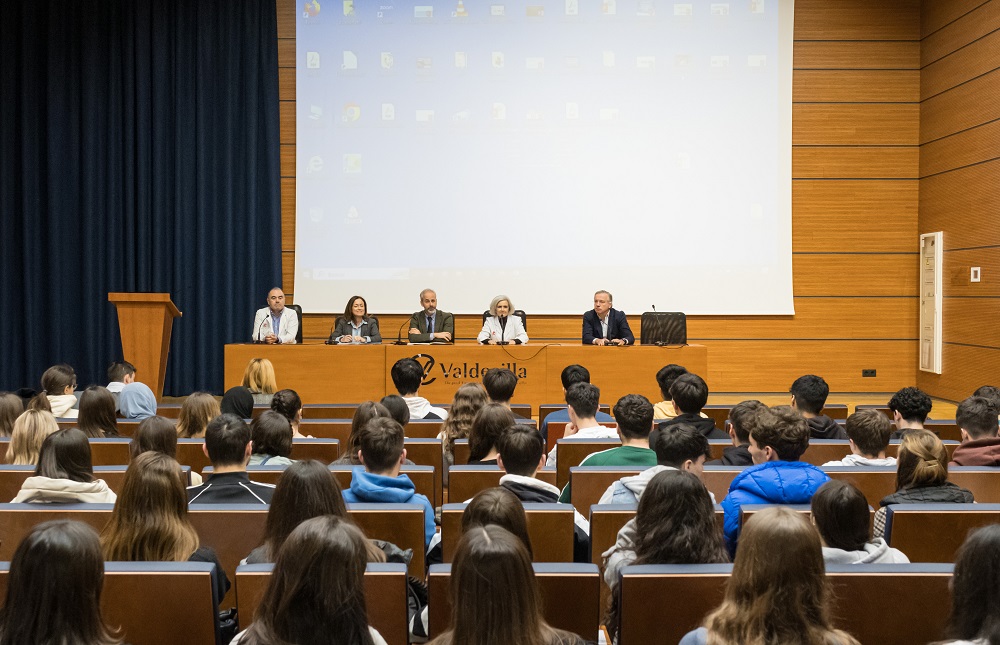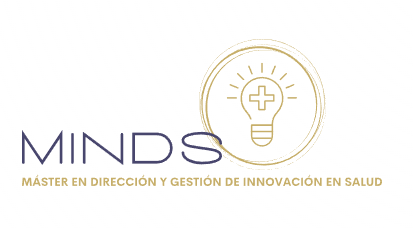One hundred students from four schools and high schools in Cantabria learn about the role of hospitals and the pharmaceutical industry in the development of a drug or how a patient can participate in a clinical trial.
Bringing science closer to schools, the program promoted by Farmaindustria in collaboration with research centers since 2016 has held this Friday a new meeting at the Marqués de Valdecilla University Hospital, in Santander, with a hundred students from four schools and institutes to learn about the process of research and development of new drugs in our country.
Students from IES José María Pereda, IES Cantabria, IES Santa Clara and Colegio Castroverde were able to learn first hand what the clinical research process consists of, from the scientific work until the drug reaches the patient.
Marcos López Hoyos, head of the Immunology Department at the Marqués de Valdecilla University Hospital and scientific director of the Valdecilla Health Research Institute (IDIVAL), explained why biomedical research is carried out in hospitals, while the director of Clinical and Translational Research at Farmaindustria, Amelia Martín Uranga, explained the process of developing, testing and marketing new drugs.
The Regional Minister of Education, Vocational Training and Universities, Sergio Silva, highlighted the “extraordinary pedagogical value” of this initiative to disseminate biomedical research.
The second objective of this program is to awaken vocations, and Enrique Ocio, head of the Hematology Department of the Marqués de Valdecilla Hospital and head of the Hematological Neoplasms and Hematopoietic Progenitor Transplantation Research Group of IDIVAL, spoke to the young people about this issue and the trajectory of the researchers.
The Value of Clinical Trials, Hope for Patients
The cornerstone of the research process is the clinical trial. This is the process used to test the safety and efficacy of new drugs and, on many occasions, the only therapeutic option for patients with serious diseases or for those who do not yet have treatment.
It is a complex process that requires 6-7 years of work and involves, together with the pharmaceutical company, authorities, researchers, hospitals and, of course, patients,” summarized Blanca Sánchez Santiago, coordinator of the Clinical Trials Unit at the Marqués de Valdecilla Hospital.
“Spain has become an international reference in clinical trials. And this leading position brings value to the Spanish healthcare system and society as a whole, since it attracts investment for hospitals, places healthcare professionals at the scientific forefront and provides opportunities for present and future patients, who can benefit from early access to new drugs through participation in trials,” said Martín Uranga.
Clinical trials are a source of hope for patients and their families and are studies conducted under strict regulations and rigorous ethical criteria, which ensure the protection of the patient at all times. Virginia Calderón, a patient participating in a clinical trial, told the students about her experience and the value of participating in these studies.
Bringing science to schools, which was created to contribute to the dissemination of biomedical research among high school students, visited the Marqués de Valdecilla Hospital for the second time after IDIVAL and Farmaindustria launched the program in this community just a year ago. After eight years in operation, the program has established itself as an activity of interest between the autonomous communities and the schools and institutes.






















